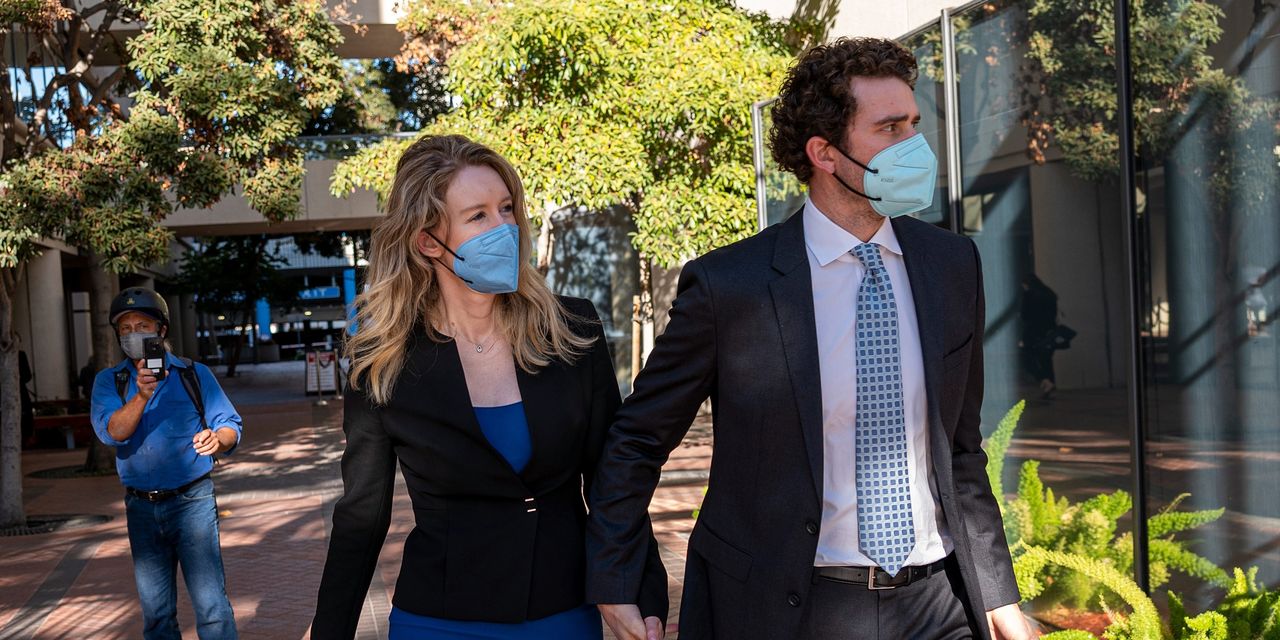
The outcome of Elizabeth Holmes’s trial partly hinges on how jurors answer the question of whether investors in Theranos Inc. were savvy speculators who made an unwise but informed bet or were hoodwinked by a lying founder.
Theranos’s investors, who bet almost $1 billion on the company and lost nearly all of it, are a disparate group: a professional football team owner, a media magnate, a Mexican tycoon, a four-star military general, a Greek shipping heir and the family office of a billionaire Republican Party donor, who all invested alongside the hedge funds and venture-capital firms that more traditionally back startups.
The government has called one investor to testify, with more likely on the way, and Ms. Holmes’s defense is expected to call investors to the stand, too. Prosecutors will attempt to show Ms. Holmes didn’t just face the setbacks and course-corrections common in startups, but that she knowingly lied to investors who in turn based their investment on false information. Ms. Holmes’s lawyers have pointed to the wealth and success of Theranos’s investors to argue that they were well-equipped to understand the risk of a speculative bet on nascent technology.
“These were sophisticated people, and they knew what they were buying,” Lance Wade, one of Ms. Holmes’s attorneys, told the jury during his opening statements. “They weren’t misled or cheated by Ms. Holmes or anyone else.”
Prosecutors have said Ms. Holmes falsely told investors that Theranos’s blood analyzer could accurately and reliably run more than 200 blood tests from a finger-prick sample of blood, its devices were used by the military in the battlefield and its technology had been validated by major pharmaceutical companies including Pfizer Inc. They have described the persistent discrepancies between Theranos’s true financial performance and forecasts it gave investors, in which annual revenue projections were up to 15 times its real earned income.
Seven of the 12 wire-fraud counts against Ms. Holmes allege that she defrauded or conspired to defraud investors. Ms. Holmes has pleaded not guilty to all charges. Attorneys for Ms. Holmes didn’t respond to a request for comment.
Prosecutors say Ms. Holmes’s scheme to defraud investors stretched from 2010 to 2015. At least 11 Theranos investors are listed in court filings as possible witnesses, although not all are likely to testify.
According to court filings, prosecutors may cite as evidence a presentation prepared for prospective investors as part of a 2014-2015 funding round. The presentation doesn’t share any financial performance but includes six pages of patient and doctor testimony praising Theranos’s technology. It includes a map of thousands of Theranos testing centers, displaying a planned nationwide rollout with Walgreens Boots Alliance Inc., although that relationship began deteriorating in 2014 when Theranos missed a launch deadline.
In a 2017 interview with the U.S. Securities and Exchange Commission, Ms. Holmes said the company gave investors financial projections based on the belief that Theranos would have a meaningful retail footprint.
“Those numbers made sense in that context,” she said in a transcript reviewed by The Wall Street Journal.
Theranos’s relationship with Walgreens dissolved after three years and several setbacks, and other retail partnerships Theranos pursued never got off the ground.
Theranos raised most of its capital, more than $730 million, in a funding round that stretched from 2014 to 2015 and included construction billionaire Riley Bechtel, Greek shipping heir and philanthropist Andreas Dracopoulos, Mexican business mogul Carlos Slim, the heirs of Walmart Inc. founder Sam Walton, New England Patriots owner Robert Kraft, Betsy DeVos and her family, and Rupert Murdoch, executive chairman of News Corp, owner of the Journal. The company raised a total of $944.6 million with a $9.5 billion valuation before it dissolved in 2018, according to court documents.
Many of those investors weren’t experienced in technology startup investing. The bulk of them had never backed a medical technology company, and they lacked expertise in healthcare, the medical sciences and hardware technology. The investors didn’t respond to requests for comment.
Ms. Holmes, in her SEC interview, said she sought out wealthy families with family-controlled businesses to invest because she thought they would support her desire to keep Theranos a private company indefinitely.
Other investors had industry experience: San Francisco hedge fund PFM Health Sciences LP, a couple of hospital systems that invested through a separate fund, and Sandbox Industries, which manages a fund on behalf of Blue Cross Blue Shield Association entities and whose top executives are on the government’s witness list.
Assistant U.S. Attorney Robert Leach gave a preview of two investors the government intends to call to testify: Brian Grossman, who leads PFM Health Sciences, and Lisa Peterson, who runs the private-equity shop for a unit of RDV Corp., one of two offices managing the fortune of the family of Ms. DeVos, who served as education secretary a couple of years after her Theranos investment.
PFM hired a private investigator in response to the Journal’s reporting, which from 2015 to 2016 exposed how Theranos’s technology didn’t work, how the blood-testing company tried to cover up its failures and how patients’ lives were affected and their health jeopardized. The investigator’s interviews validated many of the details in the Journal, said people with knowledge of the matter.
Mr. Grossman’s firm, which had invested $96 million, sued the company in 2016, alleging in its complaint that Theranos “repeatedly and knowingly lied” to “induce PFM to make an investment.” Theranos agreed in a settlement to pay $43 million without admitting or denying wrongdoing, the Journal reported.
A spokesman for PFM declined to comment.
Ms. Peterson didn’t respond to calls and emails requesting comment. The DeVos family invested $100 million in Theranos, and suffered one of the biggest losses among the startup’s investors.
Ms. Holmes’s list of potential witnesses includes Richard Kovacevich, the ex-CEO of Wells Fargo & Co., who was a Theranos investor and onetime board director, and publicly defended Ms. Holmes when Theranos became the target of a criminal investigation. Mr. Kovacevich, through an assistant at his office, declined to comment.
In a May 2018 deposition that was part of a civil lawsuit brought by investors against Theranos, Mr. Kovacevich said he had no expertise in pathology or laboratory science, but he invested in Theranos based on what he felt was Ms. Holmes’s conviction in her own company.
“I am not capable of determining whether she invented a new technology,” Mr. Kovacevich said in a video recording. “I believe that she believed and therefore I invested.”
Vijit Sabnis, a partner with 1955 Capital who has years of healthcare and hard-sciences experience, said the diligent healthcare investors he knows “are maniacal about data and have a bench of Ph.D.s that they can call on” for their decision-making process. Mr. Sabnis isn’t involved in the Theranos case.
Some Theranos investors said they were so shaken that the experience has colored their subsequent investments. One said Theranos was an awakening to the importance of corporate governance, and a lesson in the need for relevant industry experience among board directors for good company performance and checks and balances for the CEO.
Silicon Valley venture capitalist Tim Draper, an old family friend of Ms. Holmes and early Theranos investor, described Ms. Holmes as having a good heart and good intentions in an email to the Journal last month.
“Her business was promising,” Mr. Draper said. He said he would invest again in Ms. Holmes, but she was better suited for a scientific or technical role, not the CEO job.
—Christopher Weaver contributed to this article.
Write to Heather Somerville at [email protected]
Copyright ©2021 Dow Jones & Company, Inc. All Rights Reserved. 87990cbe856818d5eddac44c7b1cdeb8








